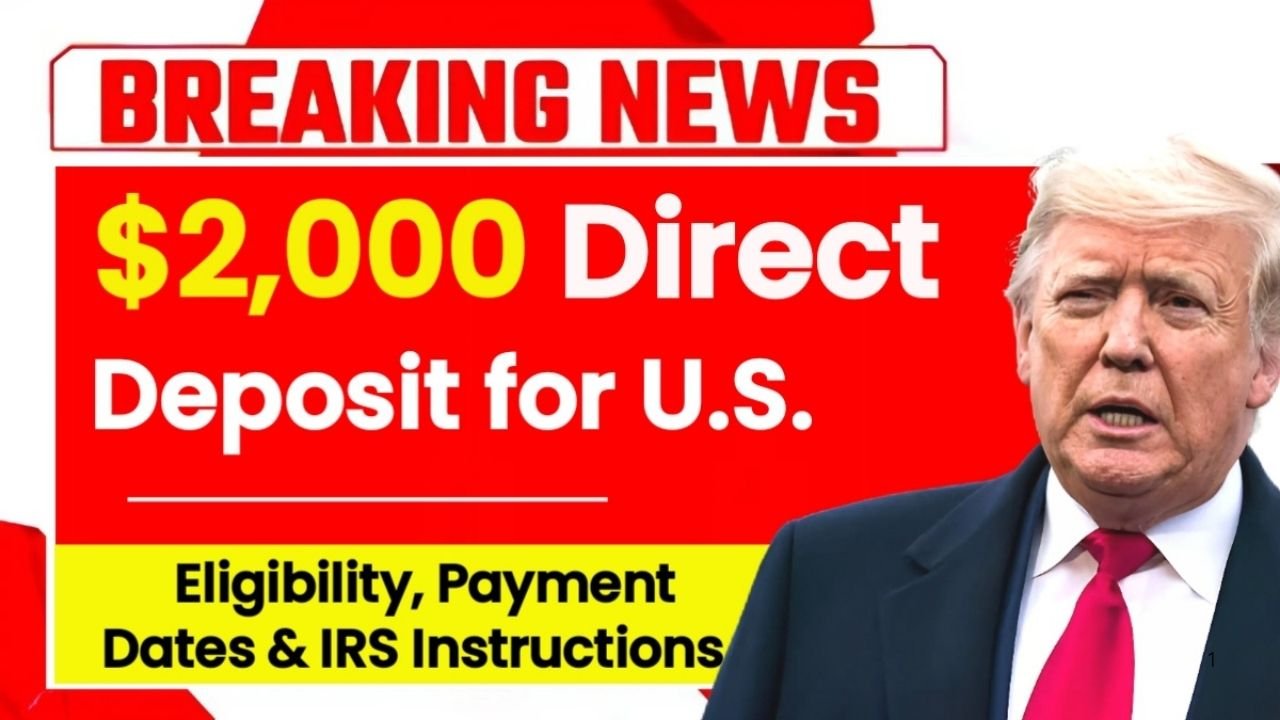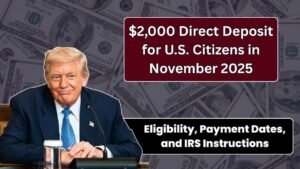The possibility of a $2,000 direct deposit in November 2025 has captured national attention as living costs continue to rise. Although no official federal announcement has confirmed such a payment, understanding how past relief programs worked can help Americans stay prepared. This guide explains potential eligibility rules, likely IRS procedures, and key steps citizens should take in case a future payment is approved.
Is a $2,000 Payment Confirmed?
As of now, the federal government has not approved or announced a new $2,000 direct deposit. However, discussions continue due to inflation, high household expenses, and public interest in financial relief. If a similar program is introduced, it will likely follow the structure of past stimulus payments.
How a Future $2,000 Payment Would Likely Work
Previous federal relief programs set clear rules around citizenship, income limits, dependent status, and tax filing. If a new November 2025 payment is approved, it will likely use:
- IRS tax data
- Social Security records
- Direct deposit information already on file
This means most people would not need to apply separately; the IRS would automatically issue payments based on existing records.
Who Might Qualify
Eligibility would likely resemble earlier stimulus programs. Potential requirements include:
- U.S. citizen or permanent resident
- Valid Social Security number
- Recent tax return on file
Income limits would likely apply to ensure the payment targets low- and middle-income households. In previous programs, higher incomes saw reduced or no payments. While specific numbers cannot be predicted yet, households with moderate earnings would be the most likely recipients.
Why Filing Taxes Matters
The IRS determines payment eligibility and deposit details using the most recent tax return. For a November 2025 payment, your 2024 tax filing will be crucial. Your bank account, mailing address, and dependent information must be accurate. In past programs, non-filers often had delays and needed to use special online IRS tools to update their information.
Dependents and Extra Family Benefits
Earlier stimulus programs provided additional amounts for dependents, often including children, full-time students, and qualifying elderly dependents. If a $2,000 payment is issued, it is possible that families could receive extra support per dependent. However, nothing has been officially confirmed.
Possible Payment Timeline
If approved, the IRS would follow a familiar distribution order:
- Direct deposits first (fastest method)
- Paper checks for those without valid banking info
- Prepaid debit cards in special cases
Direct deposits in earlier stimulus programs were often delivered within 1–2 weeks, while checks took longer due to mailing schedules.
How to Stay Safe and Avoid Scams
Scammers take advantage of financial relief announcements. Citizens should remember:
- The IRS never calls, texts, or emails asking for personal or banking information.
- The IRS never charges fees to “release” payments.
- Any message requesting gift cards, wire transfers, or login details is a scam.
Always rely on IRS.gov for updates.
Why Official Sources Matter
Social media frequently spreads false or misleading claims about new stimulus checks. Only announcements from the IRS, the U.S. Treasury, or the federal government are reliable. Following official channels prevents confusion and protects against fraud.
Conclusion
The idea of a $2,000 direct deposit in November 2025 offers hope during a period of high costs and economic strain, but no payment has been approved yet. Staying updated, filing taxes on time, and monitoring official government announcements are the best ways to be ready if a future relief program is launched.
Disclaimer
This article is for informational purposes only and does not confirm any federal stimulus program. Eligibility rules and payment dates may change if a new announcement is made. Always check IRS.gov or verified government sources for accurate information.




